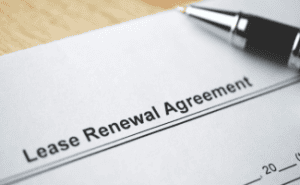6 Ways to Retain Your Renters in the Wake of Covid-19

That spells bad news for landlords, for whom turnovers cost significant time and money. From painting to new carpets, advertising vacant rental units, repeated showings, and vacancy periods, turnovers are where landlords disproportionately lose time and money. That makes retaining your existing tenants one of the easiest ways to reduce risk, labor, and expenses among your rental properties.
But that’s not necessarily easy for landlords to do during times of economic crisis. Unfortunately, high unemployment trickles up from renters to landlords, from landlords to lenders, and from lenders to the capital investors that keep money circulating where its needed most in the economy at large.
So how can landlords keep their tenants in the wake of the COVID-19 recession? Try the following six steps to keep the rent flowing and your tenants rooted.
1. Be Extremely Responsive
If you aren’t responsive when your tenants reach out to you, nothing else you do to build relationships with them matters. Tenants, like everyone else, need to feel heard when they communicate with their landlord.
The number one complaint I hear from tenants about their landlord is “She doesn’t return my calls and emails for days on end.” Even if the tenant likes the apartment itself, they won’t stay in a unit if the landlord doesn’t fix leaking pipes or lets a week go by with no heat in January.
As a landlord, you don’t need to make every single property upgrade that your tenants request. Just because a tenant asks for brand new marble countertops doesn’t mean you have to install them. But you do need to respond to them when they reach out to you.
Make it a priority to respond to every tenant within an hour of their call or email. If repairs require a few days to complete, stay in touch with them with a quick call or email once a day to give them a status update. You don’t need to spend a half hour on the phone with them – a two-line email update suffices.
Your tenants need to know that you got their message, and that you’re on top of it, whatever “it” is. If they ask for a property upgrade you don’t plan to make, tell them it’s not in the budget this year. But never, ever just ignore them or procrastinate in getting back to them.
2. Know Your Market
Are rents rising or falling in your property’s neighborhood? By how much? How has the pandemic affected housing demand there, and affected the unemployment rate?
If rents have dipped, you may need to speak with your tenants by phone or in person to feel out whether you need to offer them a slight discount over the next year in order to keep them. The alternative, repainting and advertising the vacant rental unit, would cost far more money – and still leave you with a lower rent than you’re collecting currently.
3. Offer a Rent Freeze Upon Renewal
If rents are stable or rising in your market, consider offering to freeze your tenant’s rent for the next year – with a signed one-year lease renewal, of course. They get predictable rent with no rent hike, you get rent security in the uncertain era of COVID-19.
Offer them another option as well, to suit those renters who want more flexibility. Offer a month-to-month renewal, with a small (2-4%) rent hike. Flexibility comes with a cost, after all, and it helps highlight the attractiveness of your one-year frozen rent offer.
4. Create a Friends-to-Neighbors Program
People love to live near their friends and loved ones. It’s often enough to entice people to stay put, rather than move to a larger home.
To help deepen your renters’ roots in your property, offer a deal for their loved ones. For everyone they refer, you’ll offer the incoming renter a hefty discount on their first month’s rent.
Note that the offer applies to the incoming renter, not your existing renter. People can smell it when their friends make them an offer out of self-interest, so avoid bribing your existing tenants.
Your renter gets to live next to their friends, the friends get an attractive discount, and you get your vacant rental units filled faster. Best of all, you deepen your tenants’ ties to your property, helping you keep both tenants longer.
5. Collect a Dream Upgrade Wish List
Everyone occasionally looks around their home and says “I wish this place had _________.”
Halfway through your tenants’ leases, call them up and ask them how they like living in the property. Ask them what they like, what they don’t like. Wrap up by asking “If you could wave a magic wand and change three things about the property, what would they be?” Make it clear you aren’t planning on making any upgrades in the immediate future, but that you’ll consider their ideas seriously when planning your budget for the next year.
Some of the answers will be impractical, even outlandish. But others will inevitably be good ideas, property upgrades that would offer a return on investment in the form of higher future rents and property values.
When and if you do make an upgrade they requested, it will further deepen their tie to your property and entice them to stick around longer. And when they eventually move out, the property upgrade will help you attract even better renters the next time around, and command higher rents.
6. Prune Your Bad Tenants to Keep the Good Ones
In multifamily properties, renters don’t just leave because they butt heads with their landlord. They just as often move to get away from terrible neighbors.
Bad neighbors come in many stripes, from criminals like drug dealers to noisy tenants to constant complainers to just downright rude, obnoxious people. You can’t always evict these ne’er-do-wells – in fact, the COVID-19 pandemic saw evictions suspended in many areas – but that doesn’t mean you have to offer them a new lease when their old one comes up for renewal.
Many landlords are so afraid of vacancies and turnovers that they just rubberstamp lease renewals even for bad apples. But turnoff tenants can drive away all of your good renters, causing far more damage to your bottom line and leaving you with more renters just like your problem tenant.
It’s better to fill one vacant unit than many, especially when that unit was a source of constant stress for both you and your other renters. If you’re that worried about filling a vacant rental unit, pick up a few real estate social media marketing tricks from Realtors who know their way around modern social marketing.
Final Thoughts
The coronavirus pandemic has shaken our entire economy to its core, and rental markets are no exception. But even in a healthy economy, too many landlords ignore their tenants until they get a non-renewal notice.
Beyond being responsive, be proactive. Take steps to build better relationships with your tenants. Check in with them periodically. Conduct regular inspections to catch repair issues early. Stay on top of regular maintenance.
In business, they say it’s much easier to keep your current customers than find new ones. The exact same logic applies in property management.















 Accessibility
Accessibility